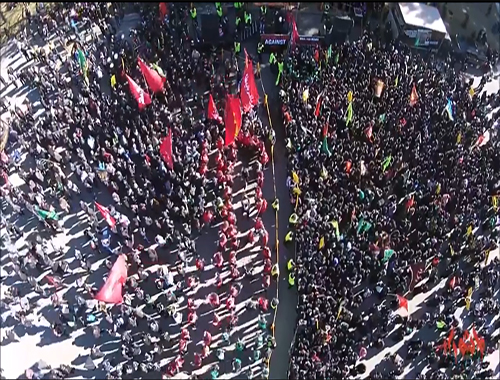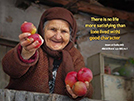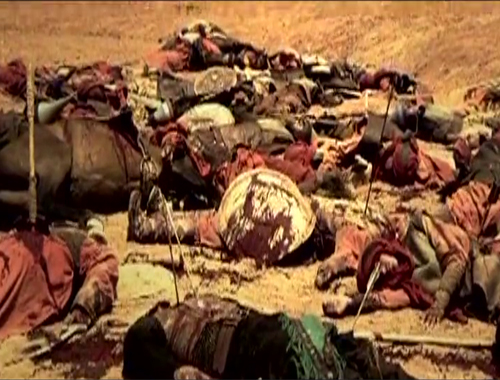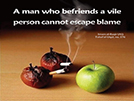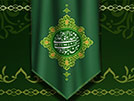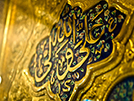Punishment for Drinking Liquor
- Details
- Hits: 2440
Punishment for Drinking Liquor
If a sane adult person, knowing that liquor is HarÄm, consumes even a drop of it of his own accord and later confesses to it or is seen in the act of drinking by two just witnesses who testify, the Judge is obliged to award punishment to him.
However punishment cannot be awarded under the following conditions: If the individual who drinks it is a child, or an insane person, or one who is unaware of its prohibition, or one drinks it by mistake being under the impression that it is not liquor and realizes the truth afterwards, or one who drinks it under coercion and force, or one who is compelled to drink due to extreme thirst there being no other way of quenching it.
The Islamic penalty for drinking is eighty lashes. Eighty lashes are given when the person drinks it for the first time. If he repeats the act after receiving 80 lashes he is lashed 160 times. If he repeats the sin again and confesses, or two just witnesses testify before a Qazi (religious Judge) the punishment is tripled; i.e. 240 lashes. The fourth instance of the crime entails capital punishment. Some Mujtahids are of the opinion that capital punishment should be given when the sin is repeated the third time.
If a person confesses and repents before the testimony of two just witnesses, he is condoned. However after the testimony he cannot escape punishment. The drunkard cannot be punished while still intoxicated. He is punished only when he gets sober. If it is a man he is stripped above the waist and lashed from the shoulders and below. It is not allowed to hit the face or the private parts of the accused. If the accused is a woman she is lashed with her clothes on. If her dress is loose, it is made to stick to the body by tying it up. She is lashed in a sitting position.
If a person drinks wine at a sacred place, for example the Holy KÄba or in a sacred period, like the month of Ramadhan, he is lashed and also given a preventive punishment that is, he is beaten so much that he may not dare to repeat the crime.
Ibn Abil al-Hadid records the following incident in Sharh al-Nahjul Balagha:
“Najashi was a famous poet of Kufa. He was originally from Yemen. He was among the army of Amir ul-Mu’minÄ«n (a.s.) at the Battle of Siffin. It was the first day of Ramadhan when his friend, Abu Sammak instigated him to drink wine at the tavern. Under its intoxication he created such a bedlam that his neighbour was compelled to complain to Amir ul-Mu’minÄ«n ‘Ali (a.s.). Hazrat summoned both of them. Abu Sammak fled but Najashi was arrested and brought by the people. By the order of the Imam (a.s.) he was detained for the night. The next day, before the congregation of Muslims he was stripped to the waist and lashed eighty times for drinking wine. After this he was given twenty more lashes. Najashi said, “Eighty lashes were for drinking wine, but why twenty more?” Imam (a.s.) replied,
“This is because you dared to drink during the month of Ramadhan and did not respect its sanctity.”
(Furu al-KÄfi, Chapter on Penal Code)
The relatives of Najashi were present in large numbers in the camp of ‘Ali (a.s.). They were perturbed at the extra punishment. One of them, Tarikh Ibn Abdullah said:
“We Yemenis are among your loyal friends and Shias. We expected you to consider us differently from your enemies. Najashi is our respected kinsman. By lashing him publicly you have degraded us in the eyes of our friends and enemies. We have began to doubt if the path that we tread leads to Heaven.” Amir ul-Mu’minÄ«n (a.s.) said,
“Strict adherence to justice and commands of Allah hurts the sinners. What have I done? Najashi dared to disobey the Divine command. I have only punished him according to the laws. Allah says:
‘... And let not hatred of a people invite you not to act equitably; act equitably, that is nearer to piety, be careful of (your duty to) Allah...’”
(Surah al-MÄ’ida 5: 8)
Ibn Abil al-Hadid writes, “Najashi and Tarikh were unable to assert their opinion. They left Kufa and went to Syria to join the group of Muawiya.” Their meeting with Muawiya is not described here. Its details can be studied in Ibn Abil al-Hadid’s Sharh al-Nahjul Balagha, Vol. I part iv page no. 366.


